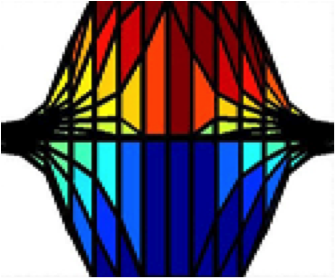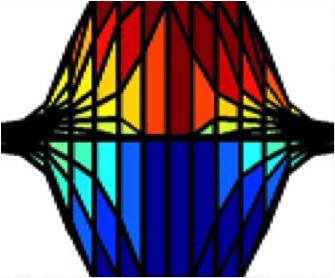Same difference
Suitably tuned mercury telluride/cadmium telluride quantum wells were predicted to be two-dimensional topological insulators and host the quantum spin-Hall effect, exhibiting chiral edge states that carry opposing spins in opposite directions. Experiments did verify that prediction, but the presence of disorder complicates the story. While the surface states of a topological insulator are immune to weak disorder, the experiments revealed hallmarks of localization. Concentrated efforts to understand this puzzle led to the discovery of the topological Anderson insulator, a state of matter in which disorder not only induces the well-known metal insulator transition but, in fact, is also responsible for topological nontriviality, i.e., the creation of the edge states. Intense debate ensued on whether this phase is fundamentally new and therefore disconnected from the quantum spin-Hall phase in the relevant phase space.
Now, in an article appearing in Physical Review B, Emil Prodan from Yeshiva University in New York settles the issue. By numerically exploring in detail the phase space characterizing these systems, Prodan shows that the topological Anderson insulator phase is not distinct but rather a part of the quantum Hall insulator phase, the boundaries of which become severely deformed as disorder is strengthened. This work provides a new way to understand the origin of the topological Anderson insulator phase. – Alex Klironomos





